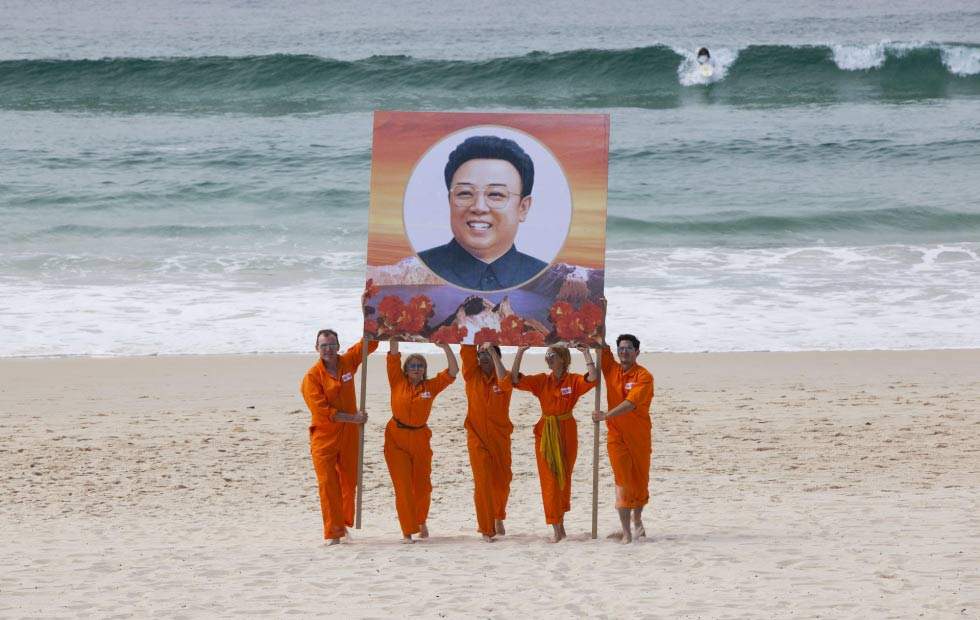Aim High in Creation!
An interesting take on North Korean propaganda, but some things get lost in translation.
Overview
Fuelled by North Korea’s juche ideology of self-reliance and social betterment, this shoestring Australian doco is an oddball mashup of methods, concepts and cultures. Taking the techniques outlined in Kim Jong-il’s filmmaking manifesto The Cinema and Directing as her guide, director Anna Broinowski chronicles her own re-education in Pyongyang’s secretive film studios, where she hopes a crash course in propaganda will help her fight an environmentalist battle back home. While not particularly polished or probing, the final product is an amusing affair, one that also reveals the culturally transcendent power of shared artistic expression.
Broinowski’s strange journey begins with the discovery that money-hungry gas companies want to frack near her suburban Sydney home. After attempts to make a more conventional documentary on the issue are stymied, the desperate filmmaker decides a more unorthodox method is in order. So Broinowski travels to the heart of Korea’s socialist stronghold, for tips from top filmmakers on how to discredit her capitalist foes. Upon returning to Australia, the newly invigorated people’s champion hires five unsuspecting actors for the strangest project of their lives: an anti-fracking short film made in Kim’s brazenly melodramatic style.
With a premise this bizarre, it’s no wonder the movie is rather messy. Of the three often awkwardly interwoven plotlines, about coal seam gas, life in North Korea and the making of Broinowski’s short, it’s the scenes shot in Pyongyang that are easily the most compelling — although it’s as much for the things they don’t show as the things they do. Filmed under the scrutiny of North Korean officials, there’s no hint of oppression or poverty in Broinowski’s footage, save perhaps for the nervous eyes of a soldier, who pauses midway through an interview to ask the translator if he’s going to get “in trouble.”
Less forgivable is the surface level discussion regarding the dangers of coal seam gas mining. Rather than drawing on scientific evidence, Broinowski treats viewers to a series of interviews with struggling farmers, including one man who blames a nearby gas well for his grandkid’s worsening health problems. One doesn’t doubt his anguish, but particularly in the context of a film about propaganda, it’s easy to see how Broinowski is exploiting the scene to manipulate the emotions of her audience.
Conversely, the most memorable moments are those that feel most genuine. Most notably, while in Pyongyang, Broinowski somehow manages to convince Kim Jong-il’s favourite composer, Pae Yong-sam, to contribute the score for her short. For him, it’s the first time he’s worked with an Australian and it’s clear how much pride he takes in his work. Amidst all of Broinowski’s sometimes disorganised ideas, the simple notion that art can be a point of common ground is also her most insightful.





